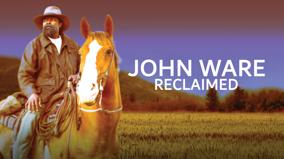Home Feeling: Struggle for a Community
This feature documentary takes us to the heart of the Jane-Finch "Corridor" in the early 1980s. Covering six square blocks in Toronto's North York, the area readily evokes images of vandalism, high-density subsidized housing, racial tension, despair and crime. By focusing on the lives of several of the residents, many of them black or members of other visible minorities, the film provides a powerful view of a community that, contrary to its popular image, is working towards a more positive future.

Details
This feature documentary takes us to the heart of the Jane-Finch "Corridor" in the early 1980s. Covering six square blocks in Toronto's North York, the area readily evokes images of vandalism, high-density subsidized housing, racial tension, despair and crime. By focusing on the lives of several of the residents, many of them black or members of other visible minorities, the film provides a powerful view of a community that, contrary to its popular image, is working towards a more positive future.
-
directorJennifer HodgeRoger McTair
-
producerJohn KramerJudy LeGros
-
executive producerJohn Spotton
-
writerJennifer Hodge
-
cameraHenry Fiks
-
soundDouglas Ganton
-
editingSteve Weslak
-
re-recordingTerry Cooke
-
narratorCharmaine Edmead
-
musicLeroy Sibbles
Education
Ages 16 to 18
Study Guide - Guide 1
Diversity - Black Studies
Family Studies/Home Economics - Family Diversity and Challenges
Family Studies/Home Economics - Housing
Social Studies - Social Policies and Programs
Warning (if any): Mention of rape, murder, outdated terminology (“Blacks”), policing that may be triggering for some.
Brief “lesson launcher type” activity or a series of inquiry questions with a bit of context:
A documentary exploring the Toronto neighbourhood of Jane and Finch and the history of systemic racism in the Toronto Police Services. In the film, they mention the term “police insensitivity”; what would we call this now? Is it more valuable to have police on “foot patrol” or police in vehicles patrolling the area? How might the shift in the methods of policing change the relationship between community members and police? Looking at the landscapes of Toronto in 1983 versus today, what changes do you notice about the areas?
At the beginning of the film, they list a variety of countries where people have immigrated from. How has this changed over time?
The perception that the white single mother is “down on her luck” and has no other choice but to live in community housing is at odds with the two-parent households of Black families that live in such communities. How does this reflect the structural racism inherent in our society and the avenues that are available to people depending on their race?
As the police are on foot patrol, many residents explain that they feel they are being policed rather than protected. Similar statements could be made today. This film was made in 1983. Black Lives Matter was founded in 2013. People took to the streets to protest police brutality in 2020. Why has it taken so long for Black voices to be heard?
In one scene, a white-presenting police officer laments about how he’s heard that groups feel discriminated against—different “colours,” women. What is problematic about this opinion?
The police also report that the “youth” exaggerate circumstances of what happens in the neighbourhood; do you believe this is true? How can youth feel as though they are being heard or empowered?

















